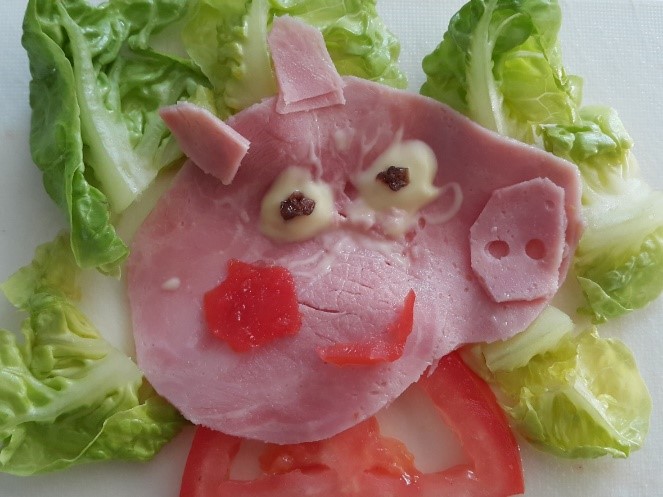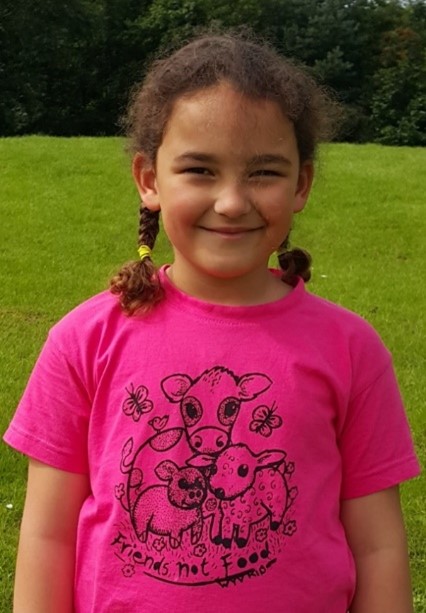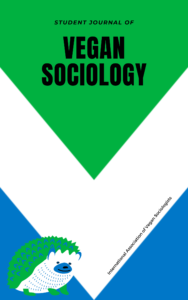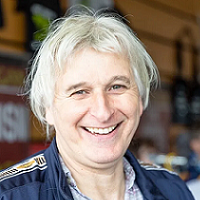
Source: Daily Mirror
By Affiliate Member, Norm Riley
The former, according to the UK TV presenter, journalist, ‘real meat’ loving millionaire man of the people and leader of the vegan resistance, Piers Morgan.
Morgan, permanently engaged in a personal battle with cancel culture, was so infuriated by a vegan sausage roll in 2019 that he labelled vegans ‘PC-ravaged clowns.’ Quorn filling wrapped in puff pastry was for this free speech champion a lethal weapon in arsenal of the army of ‘ultra-sensitive, permanently offended woke snowflakes.’
Rather than malice towards Piers for this spectacular take, I will be forever grateful to him because it inspired me to revisit Karen Morgan’s and Matthew Cole’s seminal 2011 article, Vegaphobia: derogatory discourses of veganism and the reproduction of speciesism in UK national newspapers. Their analysis of UK newspapers from 2007 argued vegans were overwhelmingly portrayed negatively. Writers presented them as hostile, weirdos, killjoys, and figures of ridicule. Subsequent studies in Australia and the USA aligned with such findings.
I wondered whether such portrayals were still the norm bearing in mind the over 300 per cent increase in people identifying as vegan in the UK between 2007 and 2020. Surely an (assumed) increase in public awareness of the detrimental environmental impacts of animal agriculture and the health benefits of a balanced plant-based diet, as well as the visibility of ‘celebrity’ vegans, would mean veganism was no longer denigrated in such ways?
I undertook a content analysis of UK newspapers from 2020, the results of which were recently published in the Journal for Critical Animal Studies. I categorised 11.2 per cent of articles as positive which, while double that of Cole and Morgan, suggested that positive portrayals remained rare. I found 27 per cent of articles portrayed veganism negatively and 61.7 per cent as neutral. This compares favourably with Cole’s and Morgan’s results of 74.3 per cent negative and 20.2 per cent as neutral. Such differences suggest, perhaps, that while pro-vegan sentiment in UK newspapers has barely grown since 2007, anti-vegan sentiment appears to have considerably decreased.
Violent Vegans?
However, the negative portrayals I found were deeply disconcerting. A particularly depressing and perhaps distressing finding is the presentation of vegans in a handful of articles as sufficiently hostile to the extent they are willing to inflict physical and psychological harm on non-vegans. I found articles positioning vegans as militant[i], blaming them for inflicting mental health harms on farmers, and describing activism as akin to terrorism[ii] and extremism. Such portrayals, while rare, can impresses upon the reader an image of a dangerous other willing to enact violence and destroy livelihoods to achieve their aims.
Animal Absence
Furthermore, articles discussing veganism which also included reference to Nonhuman Animals were rare. Nonhuman Animals were referred to in only thirty-seven (3.5 per cent) of articles. Such a finding invokes Carol Adams’s concept of the ‘absent referent’ – the choice of making absent the life of the sentient being who is killed for human benefit. A handful of these articles provided explicit descriptions reflecting the reality of the practices of animal agriculture.
Speciesism, however, was still evident even in those articles mentioning the violence inflicted on commodified Nonhuman Animals. Our violent treatment of them can be justified because, for example, they taste ‘good’. Such a position resonates with Piazza et al’s addition of the fourth ‘n’ of nice to Joy’s 3 ‘ns’ (normal, natural, and necessary) of Carnism, the ideology underpinning and rationalising our subjugation and commodification of Nonhuman Animals.
Moreover, in a rare article informing readers about the motivations for ethical veganism, the speciesist lens through which the writer views the human animal/Nonhuman Animal relationship is obvious. The writer suggests that while it may be admirable to want to stop cows being ‘artificially inseminated’ and ‘traumatized’ and bulls to no longer have semen ‘mechanically drawn’ from them, vegans’ refusal to consume dairy is hitting humans hard by impacting them financially.
Such language dilutes the actual violence inflicted on Nonhuman Animals and frames the financial implications of decreased profits as violence towards those humans employed in and profiting from their oppression. By highlighting the ‘negative’ impacts of veganism on humans and couching the horrors inflicted on Nonhuman Animals in the language of science, the public is kept ‘comfortably detached from the unpleasant reality of modern farming’.
Neutrality as Dangerous?
I also argue that neutral articles, those offering non-evaluative content such as ‘vegan’ recipes or consumer products, while not generating anti-vegan sentiment, are perhaps not as harmless as their banal content suggests. Baltzer’s argument on the dangers of neutrality helps us understand that such articles, while not portraying veganism negatively, may contribute to maintaining carnism and, therefore, the killing of Nonhuman Animals. By asking whom our neutrality benefits, it is revealed to us that the notion of such a position is a myth. Put simply, remaining supposedly neutral in an unjust system perpetuates injustice and reinforces existing power (im)balances.
In conclusion, newspapers (print and online) have the power and authority to construct meanings, are influential in informing readers’ opinions, and are critical platforms for educating the public. Mainstream news media is inclined to promote the practices of the hegemonic culture while simultaneously perpetuating the marginalisation of minority group practices through denigration or ignorance. The persistence of negative portrayals of vegans, the intentional absenting of the Nonhuman Animal from discussions on veganism, and the misinformation around the impacts of vegan activism remind us that we must continue to challenge those journalists and writers whose words contribute to the perpetuation of the immiseration, oppression and slaughter of billions of sentient beings.
[i] Thomson, A. (2020) Britain needs farmers more than ever. The Times. 04 March 2020.
[ii] James, E. (2020) Butchers: Vegans are just terrorists. The Sun. 22 February 2020









